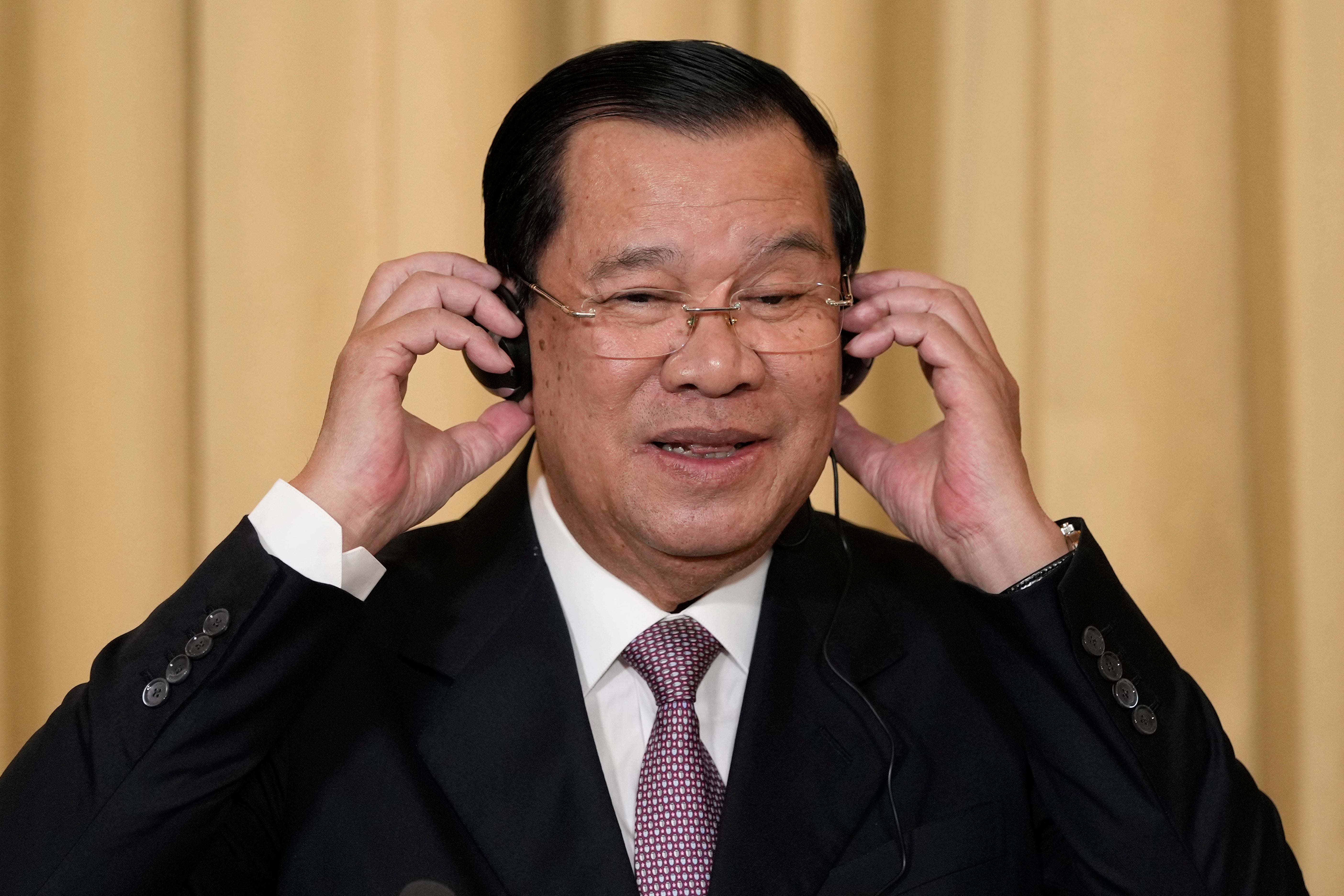Long-serving Cambodian leader Hun Sen hints at retirement
Cambodia’s Prime Minister Hun Sen has hinted strongly that he intends to step down as the country’s long-serving leader when a new government is installed after July’s general election

Your support helps us to tell the story
From reproductive rights to climate change to Big Tech, The Independent is on the ground when the story is developing. Whether it's investigating the financials of Elon Musk's pro-Trump PAC or producing our latest documentary, 'The A Word', which shines a light on the American women fighting for reproductive rights, we know how important it is to parse out the facts from the messaging.
At such a critical moment in US history, we need reporters on the ground. Your donation allows us to keep sending journalists to speak to both sides of the story.
The Independent is trusted by Americans across the entire political spectrum. And unlike many other quality news outlets, we choose not to lock Americans out of our reporting and analysis with paywalls. We believe quality journalism should be available to everyone, paid for by those who can afford it.
Your support makes all the difference.Cambodia’s Prime Minister Hun Sen hinted strongly Tuesday that he intends to step down as the country’s long-serving leader when a new government is installed after July’s general election.
The 70-year-old Hun Sen has led Cambodia with an iron fist for 38 years, and during the last election in 2018 had vowed to stay in office for two more terms, until 2028. Since then, however, he has spoken often of having his eldest son, Hun Manet, succeed him and appointed him to several high profile and important positions.
He explicitly declared his support in December 2021 to have Hun Manet, Cambodia’s West Point-trained army commander, take over his job but only through elections.
Hun Manet, 45, holds several other key security posts, and in 2018 already had been elevated from the ruling Cambodian People’s Party’s 865-member Central Committee to its 37-member Standing Committee, the country’s key decision-making body, making him a de facto member of his father’s political inner circle.
Hun Sen had been a middle-ranking commander in the radical communist Khmer Rouge in the 1970s before defecting to Vietnam. When Vietnam ousted the Khmer Rouge from power in 1979, he quickly became a senior member of the new Cambodian government installed by Hanoi.
A wily and sometimes ruthless politician, Hun Sen has maintained power as an autocrat in a nominally democratic framework. His Cambodian People’s party, with a stranglehold on power, is certain to top the next polls. It won all the National Assembly seats in the 2018 election, after the court ordered that the only credible opposition grouping, the Cambodia National Rescue Party, be dissolved for allegedly plotting the illegal overthrow of the government. The courts are widely seen as being political tools of the ruling party.
Speaking Tuesday to villagers at a hydropower project in the western province of Pursat, Hun Sen said the time had come for a new generation to take over.
He told them a fortune teller had predicted that he will die at the age of 93, but no one should keep working until the day they die, he said in remarks aired on his social media and television stations.
Hun Sen called himself the world's longest serving prime minister, and said that if the time he served as foreign minister and deputy prime minister is included, his career as a national leader spans 44 years, “too long already.”
"Now we have found the young generation that will come to replace us. We should better hand over to them and just stay behind them,” he said.
Even when he steps down, Hun Sen vowed he will stand behind the new prime minister. He said the new Cabinet will be strong with veteran retired politicians like himself standing by its side.
Hun Sen said the new post-election government would likely be formed in September.